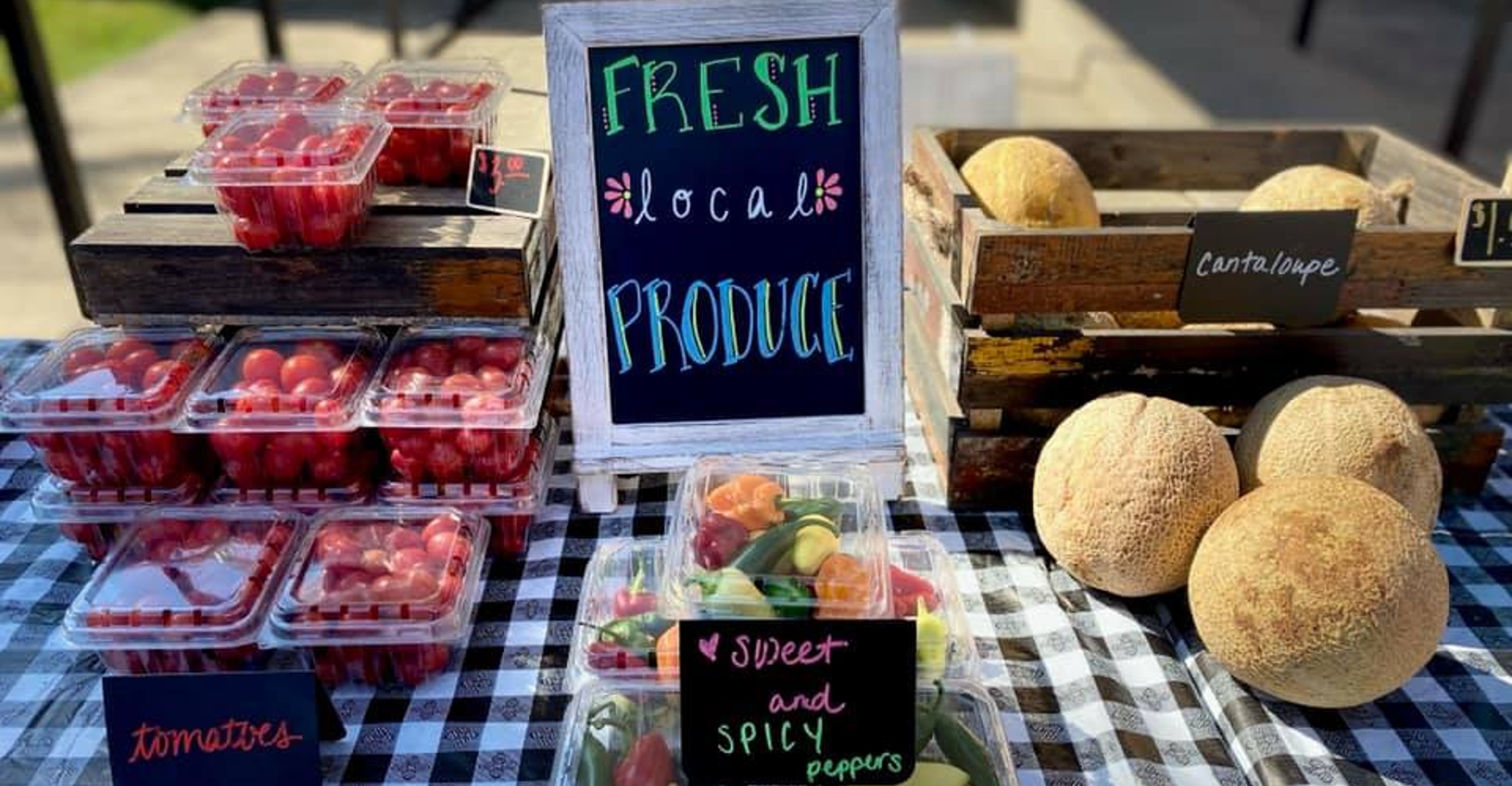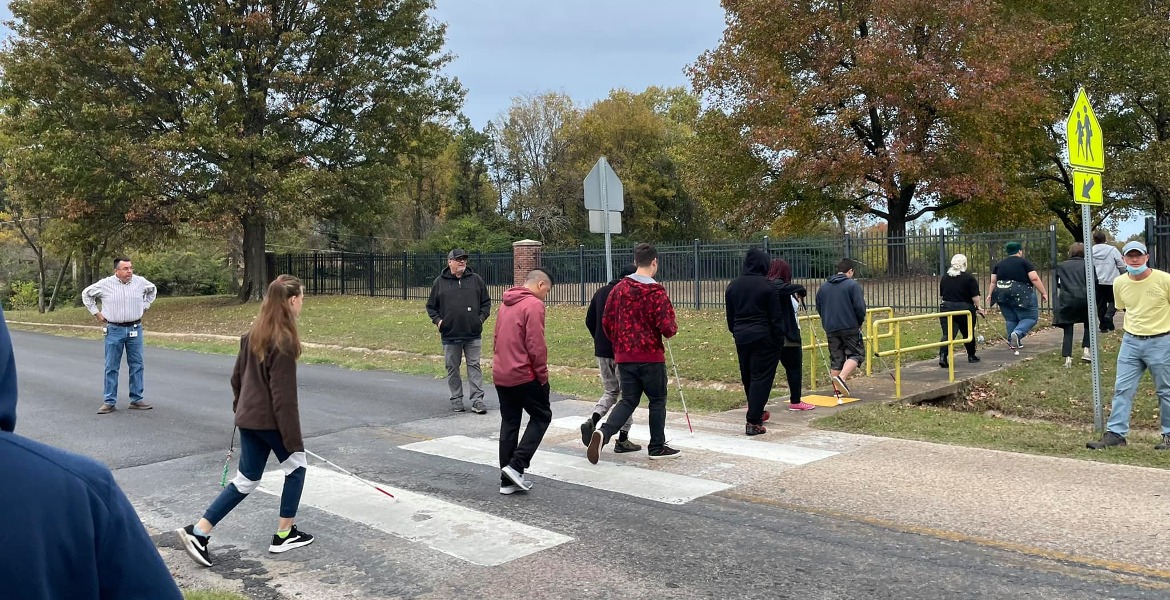
High Obesity Program makes the healthy choice the easy choice
Tuesday, December 7, 2021
Media Contact: Gail Ellis | Communications Specialist, Copywriter | 620-515-2498 | gail.ellis@okstate.edu
The High Obesity Program, funded through the federal Centers for Disease Control and Prevention, currently serves residents in Adair and Muskogee counties with community projects that improve access to healthy food and safe places for physical activity.
The more than $464,000 of HOP funding awarded to Oklahoma State University Extension has contributed to significant strides in eliminating health disparities. In its fourth year of a five-year grant, the project’s momentum continues to build in small towns where it’s needed most.
OSU is one of 15 land-grant universities partnering with the CDC to address counties with extreme obesity rates. Oklahoma consistently ranks in the bottom five states for overweight or obese residents and reported a 36.4% obesity rate in 2020. Adair and Muskogee counties were predetermined by the CDC with over 40% adult obesity rates based on Behavioral Risk Factor Surveillance Systems Data.
“Education is only one part of the problem,” said Jenni Klufa, assistant state Extension specialist for OSU’s Community Nutrition Education Programs. “It’s also about changing environments and systems, and that’s what HOP does — it decreases barriers for people.”
HOP is a multi-faceted program that not only supports nutrition knowledge and how to increase physical activity, but also advocates for infrastructure improvements that support a healthier lifestyle. Lacey Wallace, HOP project manager, said community partners play a vital role in the program’s success.
“Both counties already had community champions in their health coalitions working on similar projects that were identified as HOP strategies,” she said. “Having those relationships within our communities made it a lot easier to collaborate with and leverage each other’s funding for sustainable projects.”
Jessie Collins, the Adair County HOP educator, has teamed up with city councils to pass policies and street resolutions, introduce mobile markets with fresh produce and implement after-school programming that supports healthy living.
Adair County HOP works closely with the Oklahoma Tobacco Settlement Endowment Trust to implement wellness initiatives and received a supplemental Farm to School grant to boost nutrition and health policies.
“We look at a lot more than just childhood obesity,” Collins said. “We’re trying to create everyday destinations residents can walk or bike to. It’s eye-opening to realize it’s about more than supporting just kids.”
“Our goal is to improve policies, systems and environmental changes that help make the healthy choice the easy choice in all these different settings,” said Susie West, Muskogee County HOP educator. “We’re improving the capacity for food banks and pantries to have fresh produce by purchasing refrigerators and freezers, and we host Safe Routes to School events that encourage walking.”
West and Collins have established relationships with Head Start organizations, public school systems, teen centers and food pantries to regularly partner on activities that promote healthier living.
Since working with The Hope Center, a local food pantry in Westville, Oklahoma, Adair County HOP has added shelving units, freezers and stainless steel tables, expanding the organization’s food storage capabilities from 10,780 pounds to 15,059 pounds per month.
HOP has teamed up to support park revitalization projects, and other improvements
through the Safe Routes to School project in Westville, such as adding drop zones, bike racks, signage and crosswalks. Ten students now ride
their bikes to school as opposed to just two, Collins said.

In Muskogee County, more than 400 students have learned to garden through the Farm to School program, 250 food insecure families were connected to affordable, local produce through veggie prescriptions with the OKFresh program and more than 4,000 pounds of produce were distributed through mobile markets.
Other progress indicators include a Muskogee County HOP partner, HONA, which has been accepted as a SNAP vendor for mobile markets at Head Starts in Muskogee. As a result, this spring, parents will be able to use their EBT and PEBT cards to purchase additional produce at the markets and expand access to SNAP benefits.
While Collins and West work closely with Extension specialists in county offices, HOP is a separate entity. A new grant proposal to extend HOP projects is in progress, and both educators have big goals they hope to accomplish.
“We’d like to see the programs we’ve implemented be functional and sustainable without HOP having to orchestrate them,” West said.
Collins aims to extend Tulsa food bank projects to Adair County, expand community partnerships, and after advocating for the resurfacing of Westville’s downtown street, branch off into additional infrastructure improvements.
